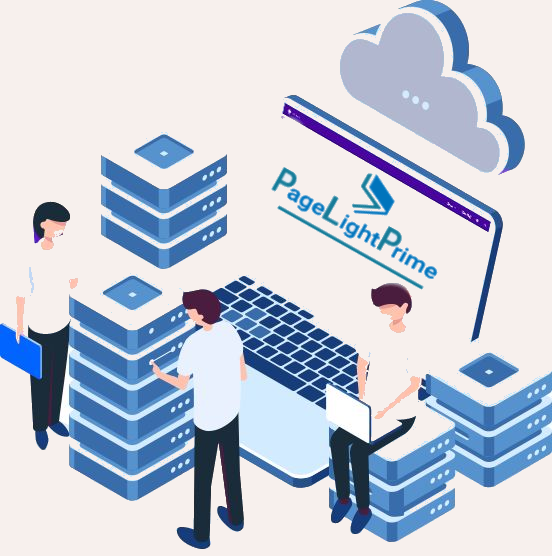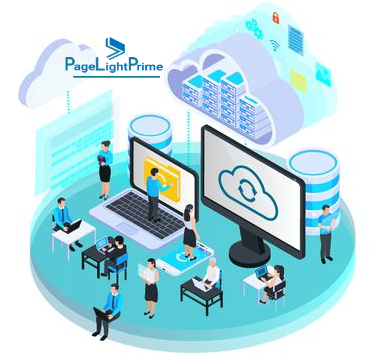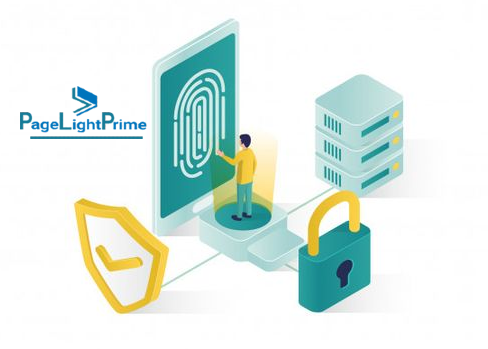Cloud Legal Software and Services for Law Offices
The legal industry has embraced innovation to streamline its operations and better serve clients. One of the most transformative developments in recent years has been the adoption of cloud-based legal software and services by law offices. This shift has not only improved efficiency but has also enhanced collaboration, accessibility, and data security.
Written by Knowledge Team, posted on September 23, 2023

Exploring the world of cloud-based legal software and services, this post will discuss their benefits, challenges, and key considerations for law offices looking to make the transition.
The Rise of Cloud-Based Solutions
Traditionally, law offices relied heavily on on-premises software and physical document storage. This often-meant limited accessibility, increased costs for maintaining servers and IT infrastructure, and concerns about data security. However, cloud technology has disrupted this status quo by offering a more flexible and scalable alternative.
Cloud-based legal software and services leverage remote servers to store and manage data, making it accessible from anywhere with an internet connection. This shift has ushered in a host of advantages for law offices:

Accessibility
Attorneys can access case files, documents, and software applications from their office, home, or on the go. This flexibility promotes productivity and responsiveness to client needs.
Cost-Efficiency
Cloud-based solutions typically involve subscription-based pricing models, reducing the upfront capital expenses associated with purchasing and maintaining on-premises hardware and software.
Collaboration
Cloud platforms enable seamless collaboration among legal teams, as multiple users can work on the same document simultaneously, with real-time updates.
Security
Reputable cloud providers invest heavily in security measures, often surpassing the capabilities of individual law firms. Regular updates, encryption, and data backups protect sensitive client information.
Scalability
Law offices can easily scale their cloud resources up or down based on their needs, avoiding the constraints of physical infrastructure.
Disaster Recovery
Cloud-based services often include robust disaster recovery features, ensuring that critical data is not lost in the event of unforeseen disasters.
Key Cloud-Based Legal Software and Services
Document Management and Collaboration
PageLightPrime
A cloud-based law firm document management system and collaboration solution built on Microsoft 365. It offers seamless document storage, organization, and secure collaboration for law firms and legal departments. Features include version control, access controls, and real-time collaboration on legal documents.
NetDocuments
NetDocuments is a cloud-based document and email management system designed for law firms and legal departments, offering features like version control and secure collaboration.
iManage
iManage provides document and email management, as well as workflow automation, specifically tailored for legal professionals.
DocuWare
DocuWare offers document management with workflow automation, enabling secure storage and retrieval of legal documents.

Practice Management

PageLightPrime
PageLightPrime, as a cloud-based legal tech solution, expands its functionality to encompass practice management. It simplifies administrative responsibilities such as time tracking, billing, and client management, all within the familiar Microsoft 365 environment. PageLightPrime equips law firms with the tools to effectively oversee their legal tasks while harnessing the capabilities of Microsoft 365.
Clio
Clio is a comprehensive practice management software that includes time tracking, billing, and client management features.
MyCase
MyCase offers case management, time tracking, billing, and communication tools in one platform.
PracticePanther
PracticePanther is a cloud-based practice management solution with features for legal billing, document management, and client management.
Legal Research
Westlaw
Westlaw is a widely used legal research platform providing access to extensive legal databases, case law, and statutes.
LexisNexis
LexisNexis offers a vast collection of legal resources, including case law, statutes, and secondary sources.

Electronic Discovery (eDiscovery)
Relativity
Relativity is an eDiscovery platform that assists with data collection, review, and analysis for litigation purposes.
Nuix
Nuix provides eDiscovery and investigation software for processing, reviewing, and managing large volumes of electronic data.
Everlaw
Everlaw offers a collaborative eDiscovery platform with advanced analytics and document review capabilities.
Contract Management
ContractPrime
ContractPrime enhances your contract lifecycle management process with an integrated solution on the Microsoft 365 platform. It enables legal professionals to draft, manage, and analyze contracts efficiently. With its Microsoft 365 foundation, ContractPrime ensures seamless integration with your existing workflows for a more streamlined contract management experience.
Icertis
iCertis is a contract lifecycle management platform that helps legal departments draft, manage, and analyze contracts.
ContractPodAi
ContractPodAI offers contract management solutions with AI-powered contract analysis and automation.
Legal Analytics
Lex Machina
Lex Machina provides legal analytics and data-driven insights to help law firms and legal departments make informed decisions.
Ravel Law
Ravel Law offers analytics tools for legal research and case law analysis.
Cybersecurity
Netskope
Netskope is a cloud security platform that helps protect sensitive legal data in the cloud.
Symantec
Symantec provides cloud security solutions, including data loss prevention and threat protection.
Billing and Accounting
PageLightPrime
PageLightPrime extends its functionality to encompass legal billing software and financial management within the Microsoft 365 environment. This integrated multicurrency legal accounting solution streamlines accounting processes, including time tracking, billing, and financial reporting, making it a versatile choice for law firms seeking comprehensive legal tech solutions.
CosmoLex
CosmoLex offers features such as trust accounting, client billing, expense tracking, and financial reporting for law offices seeking all-in-one accounting solutions.
QuickBooks Online
QuickBooks is a cloud-based accounting software that law firms can use for billing and financial management.

IP Management
Anaqua
Anaqua specializes in intellectual property (IP) management software for law firms and IP departments.
Patrix
Patrix offers robust tools for the management of patents, trademarks, copyrights, and other intellectual property assets. Patrix’s features include docketing, portfolio management, document management, and reporting.
When selecting a cloud-based legal tech solution, it’s essential to consider factors like data security, compliance with industry regulations, ease of use, scalability, and integration capabilities with existing systems. Additionally, conducting thorough research and seeking recommendations from peers in the legal industry can help in making informed decisions.
Challenges and Considerations
While the benefits of cloud-based legal software and services are clear, law offices must also address certain challenges and considerations:

Data Security
While cloud providers invest heavily in security, law firms must still implement best practices to protect sensitive client data. This includes user training, encryption, and compliance with data privacy regulations like GDPR and HIPAA.
Vendor Selection
Choosing a reputable cloud service provider is critical. Firms should evaluate factors like security certifications, reliability, scalability, and customer support before deciding.
Data Ownership and Control
Law firms must understand their rights and responsibilities concerning data ownership and control when using cloud services. Clear contractual agreements specifying data ownership, access, and retention policies are essential.
Compliance
Legal professionals must ensure that their cloud solutions comply with industry-specific regulations, such as those governing attorney-client privilege and data retention. Regular audits and assessments are advisable.
Internet Reliance
Cloud-based systems require a stable internet connection. Firms should have backup plans in case of internet outages or disruptions, such as redundant connections or local data backups.
Conclusion
The legal industry’s adoption of cloud-based legal software and services has revolutionized how law offices operate. The benefits of enhanced accessibility, collaboration, security, and scalability are undeniable. However, law firms must also navigate challenges related to data security, vendor selection, and compliance. With careful consideration and strategic implementation, cloud-based solutions can empower law offices to provide more efficient and effective legal services, ultimately benefiting both clients and practitioners in this digital age. If you’re considering making the transition to the cloud, consult with IT experts to ensure a smooth and secure migration.

